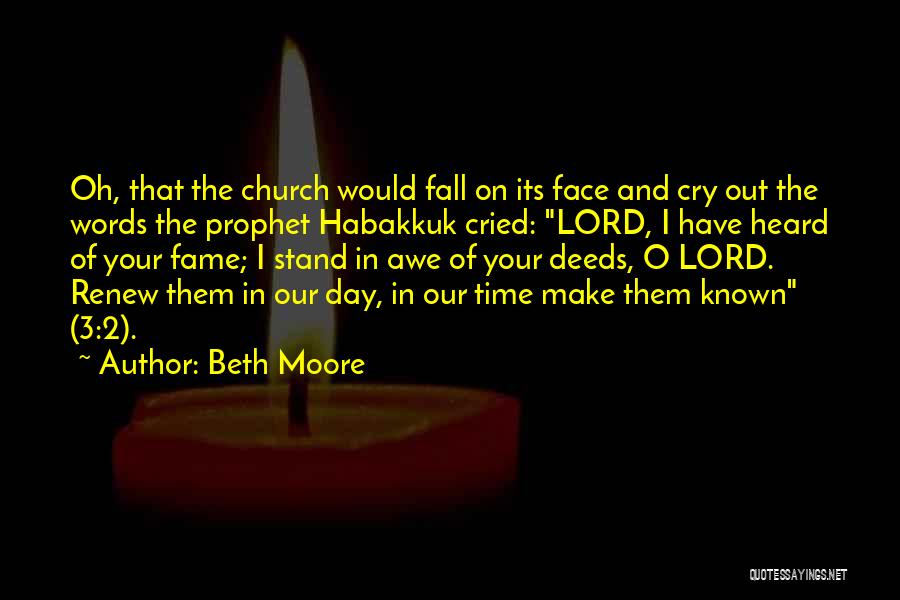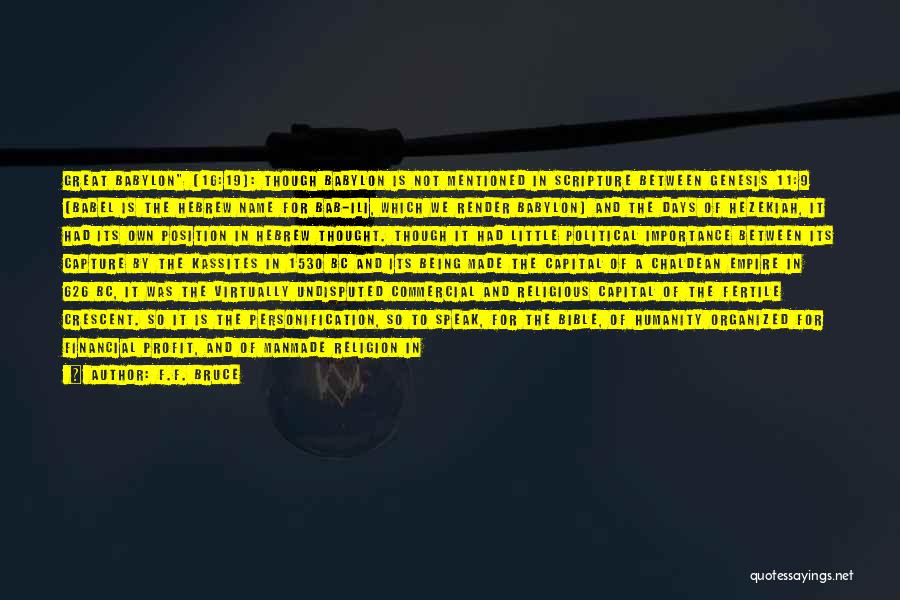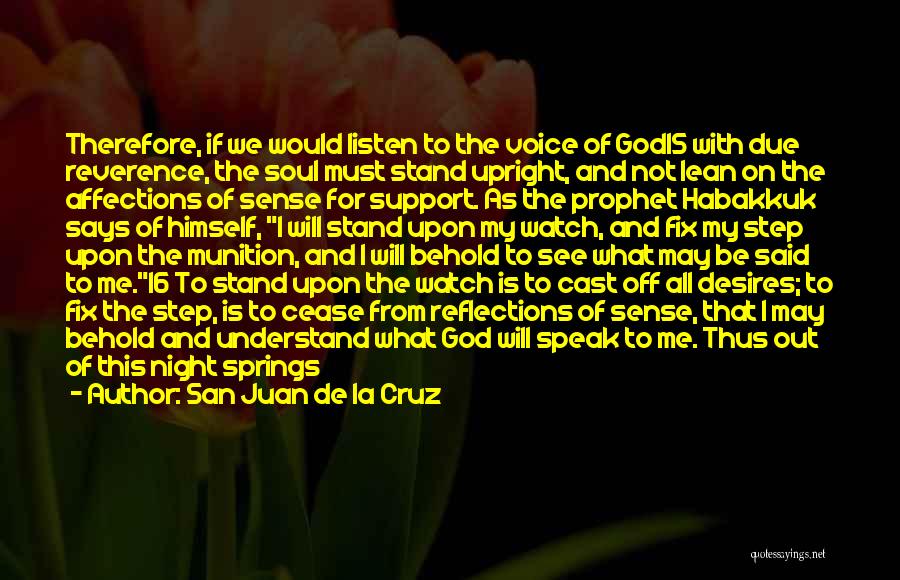Prophet Habakkuk Quotes & Sayings
Enjoy reading and share 3 famous quotes about Prophet Habakkuk with everyone.
Top Prophet Habakkuk Quotes

Oh, that the church would fall on its face and cry out the words the prophet Habakkuk cried: "LORD, I have heard of your fame; I stand in awe of your deeds, O LORD. Renew them in our day, in our time make them known" (3:2). — Beth Moore

Great Babylon" (16:19): though Babylon is not mentioned in Scripture between Genesis 11:9 (Babel is the Hebrew name for Bab-ili, which we render Babylon) and the days of Hezekiah, it had its own position in Hebrew thought. Though it had little political importance between its capture by the Kassites in 1530 BC and its being made the capital of a Chaldean empire in 626 BC, it was the virtually undisputed commercial and religious capital of the Fertile Crescent. So it is the personification, so to speak, for the Bible, of humanity organized for financial profit, and of manmade religion in all its attractive sophistry. These are the two aspects which are dealt with in chapters 17 (religion) and 18 (commerce). If we compare Nahum and Habakkuk, we shall learn something of the different impression created by the pride and cruelty of Assyria and the corruption of human nature which the prophet saw in Babylon. — F.F. Bruce

Therefore, if we would listen to the voice of God15 with due reverence, the soul must stand upright, and not lean on the affections of sense for support. As the prophet Habakkuk says of himself, "I will stand upon my watch, and fix my step upon the munition, and I will behold to see what may be said to me."16 To stand upon the watch is to cast off all desires; to fix the step, is to cease from reflections of sense, that I may behold and understand what God will speak to me. Thus out of this night springs first the knowledge of one's self, and on that, as on a foundation, is built up the knowledge of God. "Let me know myself," says St. Augustine, "and I shall then know Thee, O my God," for, as the philosophers say, one extreme is known by another. — San Juan De La Cruz





